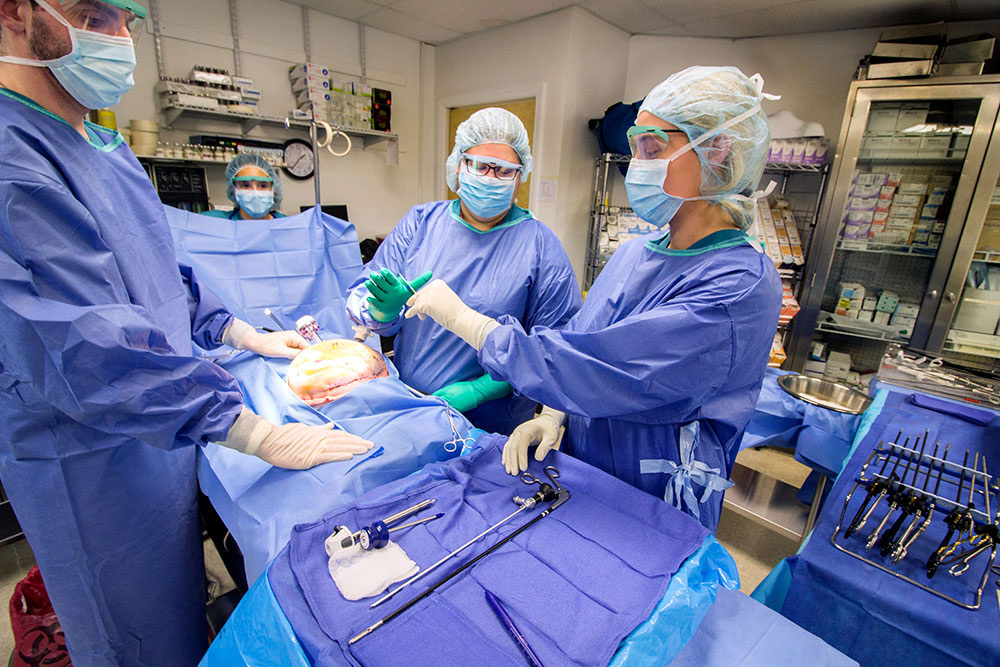Eastwick College offers unique CAAHEP approved degree program for those looking to start a career as surgical technicians
You see it everyday on shows like ER, Grey’s Anatomy and Mercy: dramatic scenes where skilled surgeons save lives right on the operating table. You could be a part of the operating room “cast” in real life through the CAAHEP-accredited surgical technology program at Eastwick College in Ramsey, NJ.
Surgical technologists are key members of the healthcare field, working in teams to assist with life-saving procedures. They help set up surgical instruments, equipment, medication and supplies before surgery, ensuring that everything is in place for the operation.
During surgery they pass these instruments and supplies to surgeons and assist by holding retractors, cutting sutures and helping apply dressings where needed.
Students in the surgical technology degree program at Eastwick College are immersed in a complete surgical operating room laboratory: under the supervision of a surgical professional they learn a wide variety of key procedures used in the operating room and how to work under high pressure situations.
Later they gain real-life experience through clinical work at local hospital operating rooms. Graduates are able to sit for the Certified Surgical Technologist (CST) and Certified Registered Central Service Technician (CRCST) certifications.
As the population increases and advances in medical technology make surgery safer, more operations are being done to treat a variety of illnesses and injuries. This has resulted in a greater demand for medical personnel to perform same-day surgical procedures. As a result, employment opportunities in surgical technology are expected to grow much faster than average.
“If you have manual dexterity, a conscientious work ethic, and can handle pressure well you should consider a career as a surgical technologist,” Director of Surgical Technology Anbalagan George explains, “The Department of Labor recently reported that employment of surgical technologists is expected to grow immersed in a complete surgical operating room laboratory: under the supervision of a surgical professional they learn a wide variety of key procedures used in the operating room and how to work under high pressure situations.
Later they gain real-life experience through clinical work at local hospital operating rooms. Graduates are able to sit for the Certified Surgical Technologist (CST) and Certified Registered Central Service Technician (CRCST) certifications.
As the population increases and advances in medical technology make surgery safer, more operations are being done to treat a variety of illnesses and injuries. This has resulted in a greater demand for medical personnel to perform same-day surgical procedures. As a result, employment opportunities in surgical technology are expected to grow much faster than average.
“If you have manual dexterity, a conscientious work ethic, and can handle pressure well you should consider a career as a surgical technologist,” Director of Surgical Technology Anbalagan George explains, “The Department of Labor recently reported that employment of surgical technologists is expected to grow 15 percent by 2022 so there likely will be strong career opportunities for our graduates.”

